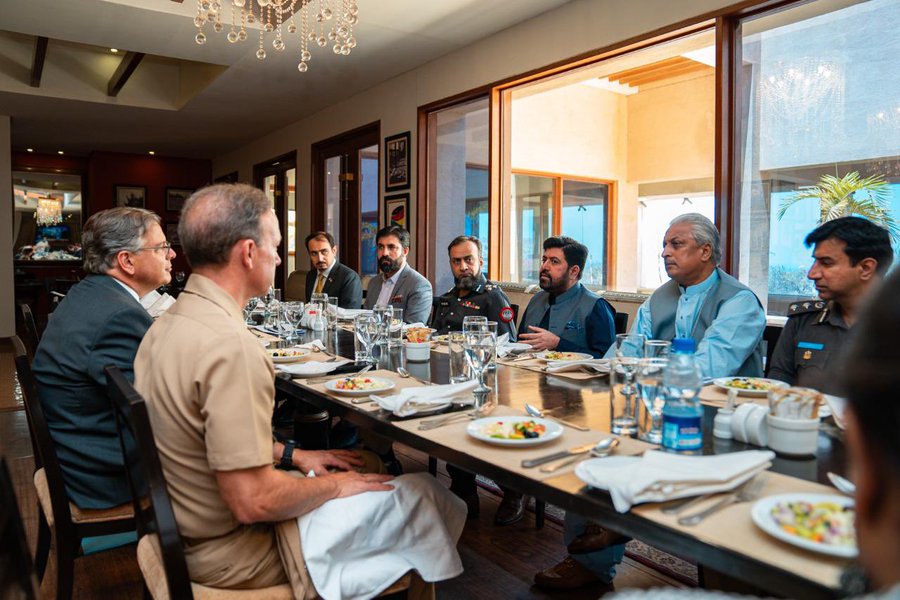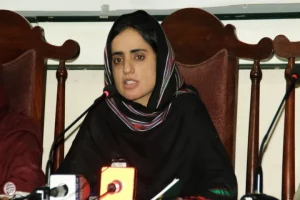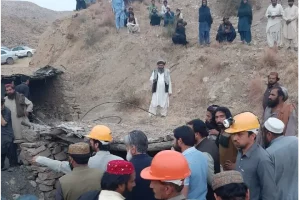US ambassador Donald Blome’s visit to the Pakistani port city of Gwadar raised a lot of heat and dust in the desert lands of Balochistan. The glare on the ambassador’s visit on September 12 remains despite the US embassy in Islamabad emphasising it purely as a trade and commerce visit.
Interestingly, the ambassador’s visit has not yet been condemned by the pro-independence Baloch outfits, which are vociferous about mentions of foreign investment in the region. Baloch analysts say that Pakistan seems to be gravitating towards the US as it feels uncomfortable with Chinese pressure over Islamabad’s inefficient handling of the China-Pakistan Economic Corridor (CPEC) – considered a crown jewel of the Pakistan-China business partnership.
A Baloch analyst told India Narrative that Blome’s visit to Gwadar is being seen as an invitation by the Pakistani Army – the de facto power running the country – with the interim government put up as a front.
“There is a cold war situation with geo-political conflicts between the US and Russia as well as US and China. We feel Balochistan is becoming a zero point for international powers. This time the US wants a presence in Balochistan’s Gwadar and other coastal areas for access to Afghanistan and Iran. The US wants to wean away a debt-trapped Pakistan from China”, said the analyst, adding that Islamabad is opening up a door for the US in Balochistan in return for financial relief.
While the US has gone public with Blome’s visit to Gwadar, which is a vital link in the CPEC connectivity corridor from Kashgar in China to the Arabian Sea in the Indian Ocean, the Pakistani Ministry of Foreign Affairs (MoFA) was seen evading questions on the visit.
To a question by a reporter from the Voice of America (VoA), whether the US might join the CPEC and other projects, a Pakistani MoFA spokesperson said: “Gwadar is an important project under CPEC. We consider it the crown jewel of Pakistan-China cooperation under CPEC. We have welcomed international cooperation under CPEC and investments by third parties. We have also welcomed foreign dignitaries and diplomats to visit Gwadar and see for themselves the potential of Gwadar and how it can be a game changer for prosperity in this region”.
On the other hand, the US statement was detailed. It said: “… the Ambassador held productive discussions with political leaders, representatives from the Gwadar Chamber of Commerce, and a diverse group of government and private sector leaders. In his meeting with political leaders, the Ambassador reiterated U.S. support for Balochistan’s development, touching on economic growth, disaster relief and preparedness; security; the benefits of U.S. trade and investment; and measures Pakistan can take to strengthen and improve its investment climate.
Ambassador Blome’s meeting with members of the Gwadar Chamber of Commerce focused on ways to increase U.S. trade and investment in the region’s business, logistics, tourism, fisheries, and blue economy sectors…”
Despite a war-like situation in Balochistan, where numerous insurgent organisations are fighting for an independent homeland, the province has attracted attention from Western countries over the past few months.
In February this year, German Ambassador to Pakistan, Alfred Grannas had announced the appointment of Murad Baloch as its honorary consul general for Balochistan. The German ambassador had earlier in 2023 met the then chief minister of Balochistan Abdul Qudoos Bizenjo for promoting German investment in the conflict-ridden province.
In February 2022, the British High Commissioner had visited the Chaman border between Balochistan and Afghanistan “to see at first hand how the UK and Pakistan are working together to help the people of Afghanistan”. During this visit, he also met the chief minister followed by a keynote speech at the Quetta Staff and Command College. His visit happened just days after Baloch fighters had stormed the Kech, Noshki and Panjgur camps of Pakistani security forces and inflicted heavy casualties.
There are organisations that downplay the American ambassador’s visit to the port city.
Qazi Rehan, the spokesperson of the Baloch National Movement (BNM) told India Narrative that the US has been involved in projects across Pakistan through USAID and other NGOs, including those operating in Gwadar. “Therefore, the American ambassador’s visit should not be seen as an unusual phenomenon, though Gwadar has always been of interest to various embassies due to its strategic location and potential for economic development”, Rehan added.
He added both China and Pakistan are involved in making Gwadar an attractive destination for foreign investment but it comes with its drawbacks for the local people and also the investors.
“It is important to consider the concerns of Baloch nationalist parties who fear that their resources may be exploited without their consent. The Baloch nation has made it clear that any forceful use of Balochistan’s resources without their will would not be accepted. Therefore, investing in Gwadar and Balochistan under these circumstances may be seen as exacerbating existing wounds”, the BNM spokesperson said.
The Baloch say that their grievances of poverty, under-development and economic deprivation have not been addressed either by Pakistan or through China’s massive investment. The Baloch nationalist movement has targeted Chinese nationals and investments in Balochistan and the adjoining province of Sindh with brutal attacks.
Gwadar too has seen the powerful Gwadar ko haq do Tehreek, Give rights to Gwadar, mass movement against the two all-weather allies led by clerics that staged sit-ins in the sensitive township.
Even as ambassadors of Western nations conduct rounds of Balochistan – where a massive insurgency is going on, ostensibly for investment and its mineral wealth, their entry may need the approval of Baloch organisations. The investors will also have to contend with the vocal Baloch diaspora that is actively campaigning for an independent Balochistan and against investments.
Another question the US will have to answer is whether it is willing to overlook or pardon the gross abuse of human rights – enforced disappearances and extrajudicial killings – by the Pakistani Army and separately by Death Squads supported by State agencies.
Till now Chinese investments have fared poorly in war-torn Balochistan. Pakistan has not paid dues to Chinese power producers, has provided inadequate security and did not invest its part of the financial commitment in CPEC projects.
The US will also have to face a blowback from China if the dragon feels threatened by American investments. China has not yet commented on ambassador Blome’s visit to Gwadar, where it is constructing a strategic port, but any American investment will be a severe blow to its deep-water ambitions which may invite retaliation sooner rather than later.
How Beijing will deal with a duplicitous Islamabad will be another story.




















